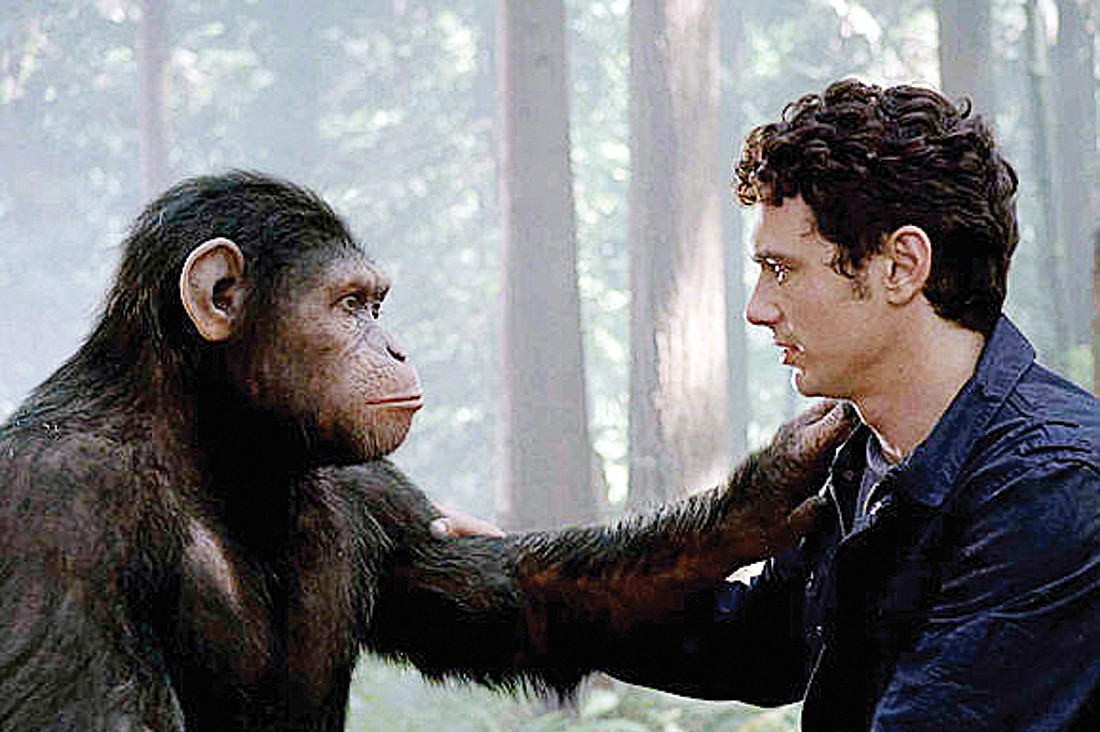- June 13, 2025
-
-
Loading

Loading

If animal abuse tears at your heartstrings, you better skip “Rise of the Planet of the Apes.” Although the apes are not living creatures, the film’s astounding effectiveness at portraying them as such can be difficult to watch.
Last year’s Oscar nominee, James Franco (“127 Hours”), stars as Will Rodman, a neurogeneticist who’s involved in creating a drug to eradicate Alzheimer’s disease. Working for a drug company greedier than hedge-funders, Will is forced to test it on chimpanzees. The effects are startling. The chimp’s IQs soar. The experiments are halted when one goes berserk, and Will fosters her baby, Caesar.
Caesar (Andy Serkis, in an Oscar-worthy performance) has inherited the genetic alteration from his mother. As he ages, he becomes intelligent enough to play a “decent game” of chess. But as we all know, chimps become apes — and apes become dangerous. So, when Caesar gets busted for biting a neighbor, he lands in a shelter for simians. This is when the film becomes disturbing. Caesar and his cellmates are brutally abused by their “caretakers.”
The first half of “Rise of the Planet of the Apes” is mildly tiresome. But when the apes organize and decide to exact revenge, all hell breaks loose on the streets of San Francisco. Incredible camerawork (by cinematographer Andrew Lesnie) captures apes defying gravity and reeking havoc on the Golden Gate Bridge. One can’t help but to cheer them.
Director Rupert Wyatt (“The Escapist”) deserves credit for concocting wizardly computer technology that makes apes out of human beings. It’s mind-blowing to behold. But on so many other levels the film falls short. Lame dialogue, a flimsy plot and bad acting keep “Rise of the Planet of the Apes” from being the great film it should have been.
Aside from its shortcomings, “Rise of the Planet of the Apes” is a visual treat and definitely a prerequisite for the probable upcoming sequel. Let’s hope they do the franchise justice in the future.